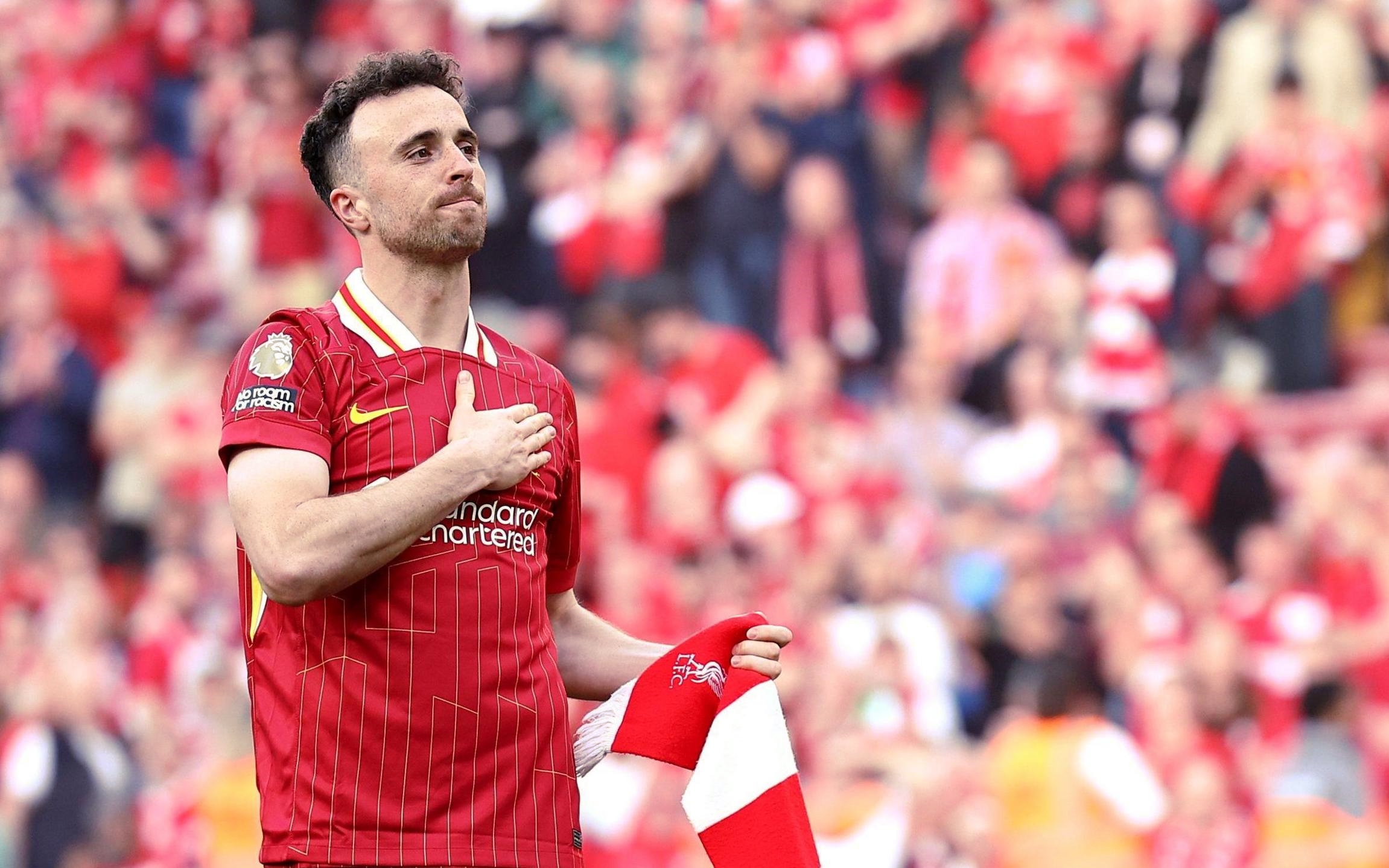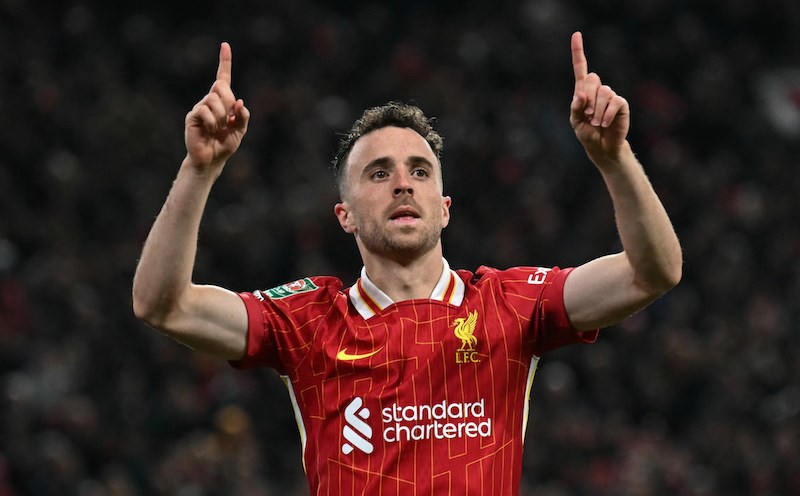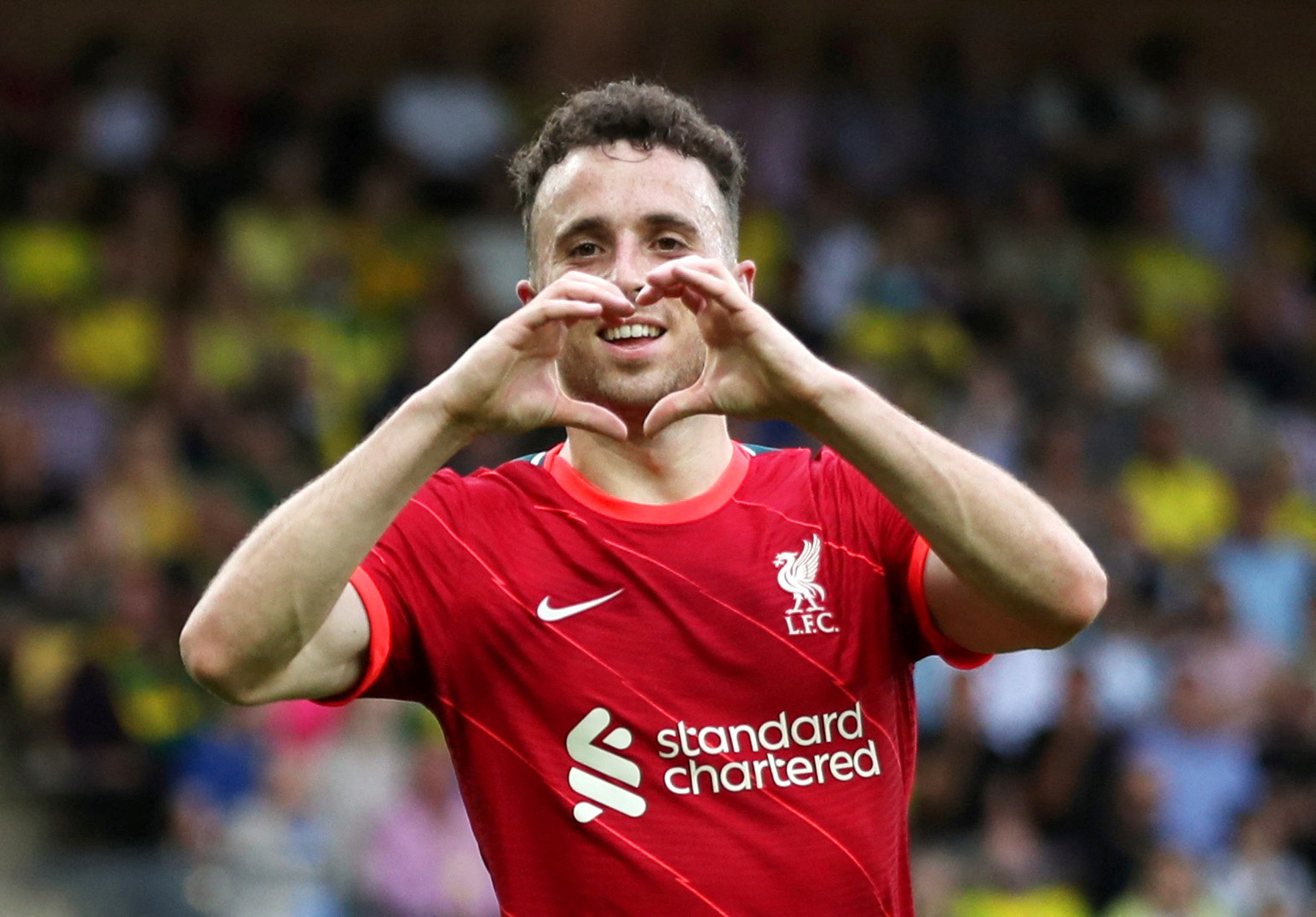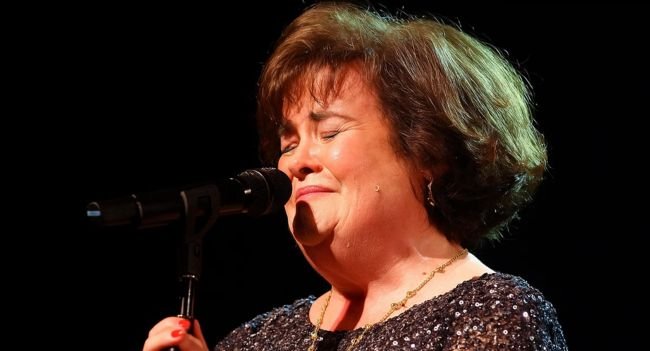It was meant to be a night of celebration — music, legacy, and joy echoing through London’s iconic Wembley Stadium. But as dusk settled on July 6, 70,000 fans fell silent. What began as a highly anticipated performance from Susan Boyle turned into something entirely unexpected: a moment of shared heartbreak and healing.
Just days earlier, the world was shaken by the sudden death of Portuguese football star Diogo Jota at only 28. Tributes had poured in across stadiums and social media — armbands worn, moments of silence held. But no one imagined the most powerful tribute would come not in words, but in song.

Susan Boyle, dressed in a simple black gown and silver cross, stepped onto the stage without introduction. There was no announcement. No spectacle. Just quiet reverence. As the first notes of “Time to Say Goodbye” rose from the orchestra, the air shifted — and Wembley held its breath.
Her voice, soft and pure, carried far beyond the pitch. She sang the Italian lyrics with aching vulnerability, as screens behind her lit up with images of Jota: laughing with teammates, holding his children, scoring in the red of Liverpool and green of Portugal. The room filled with not sound, but feeling.
As she reached the chorus, thousands joined her. One voice became many. Red scarves lifted in the air. Candles flickered in the stands. Fans, teammates, children — all singing, all remembering.
And Susan kept singing — not as a performer, but as a friend. Her voice cracked near the end, but she didn’t stop. Because this wasn’t about perfection. It was about presence.
When the final note faded, no one clapped. No one moved. For a long, sacred moment, Wembley stood still. Then the screen behind her turned black, revealing just one message:
“Gone from the pitch, never from our hearts.”
Susan gently pressed her hand to her chest and whispered:
“This was for Diogo. For his children. For anyone who’s had to say goodbye too soon.”
And then she walked away. No bow. No encore. Just silence — and tears.
Across the globe, videos of the performance spread like wildfire. The hashtag #GoodbyeDiogo trended instantly. One fan wrote, “Susan didn’t just sing. She spoke for all of us.” Another added, “She gave us the goodbye we didn’t know we needed.”
Even footballers from rival clubs shared the clip, posting a single word: Respect.
Susan Boyle declined interviews, issuing only a short note through her team:
“Susan was honored to sing for Diogo Jota and his family. Music is about connection. And that night, it connected all of us.”
For Jota’s family, who watched from a private box, the moment meant everything. A family friend later said:
“She didn’t perform. She grieved with us.”


As the crowd finally left the stadium and the lights dimmed, one woman quietly hummed the melody while walking into the night. She paused at the gates, looked up, and whispered:
“Thank you for the voice… and for the goodbye.”

Some concerts make headlines. Others make history. But this one — this moment — helped the world heal.
On that night, Susan Boyle gave us more than a song.
She gave us a gift: A farewell. A lullaby. A reminder that even when the music ends…
love always finds its way to sing.
